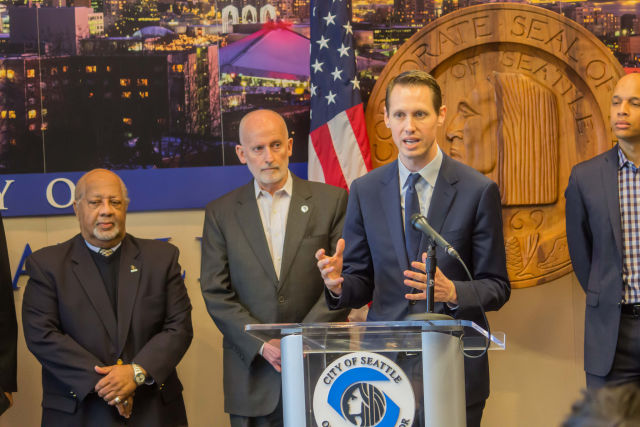Seattle City Council Approves Changes to Reduce Parking Requirements

Council member Rob Johnson at City Hall in April 2017.
Image: Seattle City Council
Seattle council members on Monday approved changes to the parking code that they hope will ultimately tackle their carbon-free, pedestrian-and-bike-friendly, affordable vision for the city.
A parking ordinance that for months has been in council member Rob Johnson's committee addresses some key parts to the city's parking code—it expands areas that fall under the definition of "frequent transit service," reduces the parking minimum for affordable housing projects, increases requirements for bicycle parking, allows underused private parking lots to be open to the public, and separates parking fees from rental leases.
The big picture goal—reduce parking and discourage driving. City officials say it's not just about the environmental impact. Parking lots take up a lot of space; they not only cut down on areas available for affordable housing construction, but they can also drive up costs for tenants since they're expensive to build for developers.
But the bill drew criticism from Seattle residents who live in areas that are underserved by public transit, like Eastlake, or low-income public housing residents of Yesler Terrace; some members of the public said the legislation was premature when low-income people or communities of color owned cars and needed to drive.
Council member Lisa Herbold, who proposed a failed amendment that would've expanded SEPA's mitigation options for parking, was the only one who opposed the legislation and said the city shouldn't impose its values without also considering people who don't fit in that model. (Council member Bruce Harrell supported her amendment but still voted in favor of the bill. Council member Kshama Sawant was absent.)
Johnson in response said he wanted as much affordable housing as possible, and said the city developed the policy based on data and "strong correlation" between more public transit and fewer vehicles.
